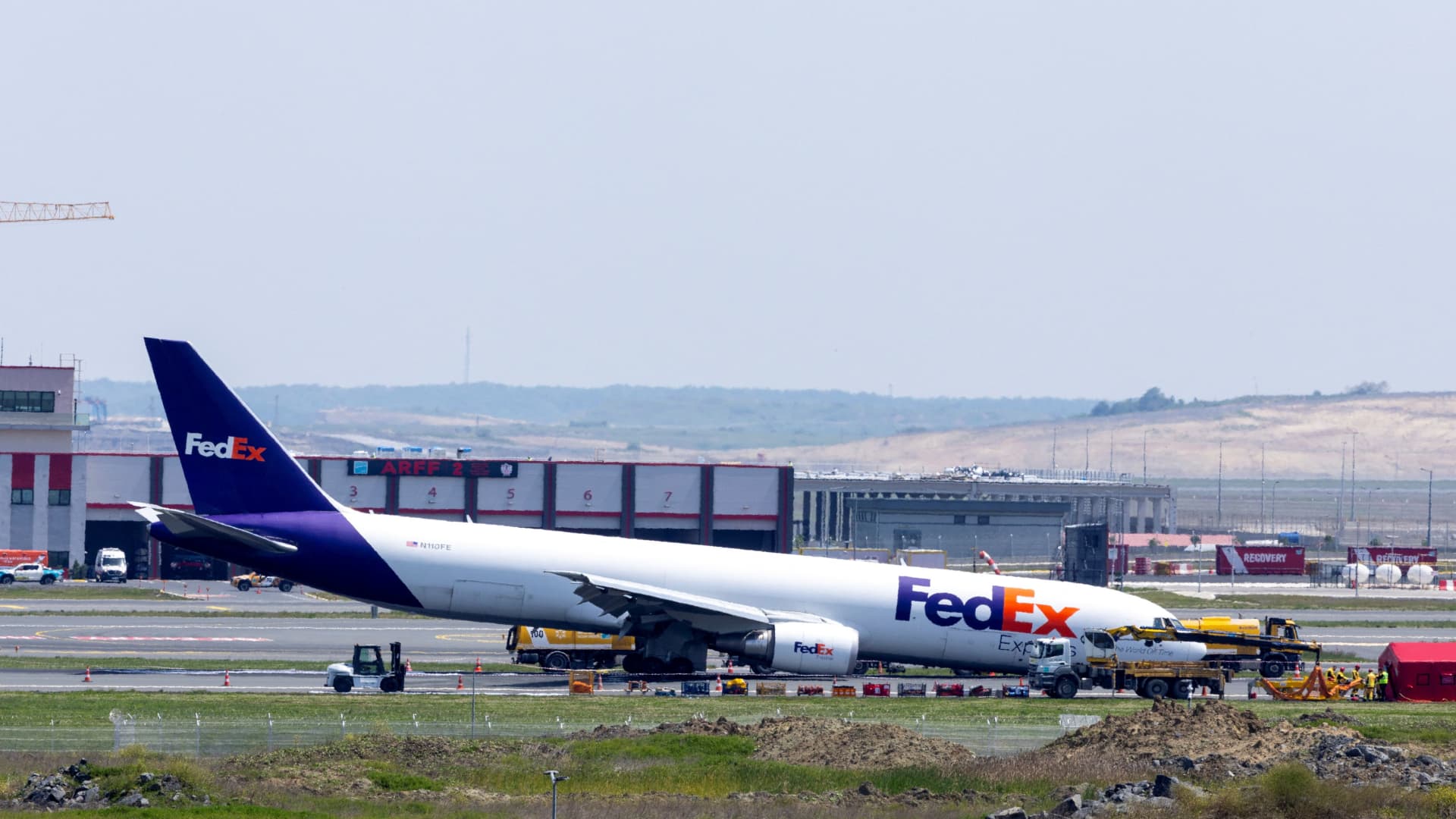A general view of a FedEx Airlines Boeing 767 BA.N cargo plane, that landed at Istanbul Airport on Wednesday without deploying its front landing gear but managed to stay on the runway and avoid casualties, on a runway in Istanbul, Turkey, May 8, 2024.
Umit Bektas | Reuters
An investigation is underway after a FedEx Airlines Boeing 767 cargo plane was forced to make an emergency landing without its front landing gear at Istanbul Airport, after the aircraft’s nose gear failed to deploy.
The jet used its back landing gear as it skidded onto the runway on Wednesday, and a video of the incident showed sparks flying and smoke as the nose and front fuselage of the plane hit the ground where the front landing wheels should have been. The plane managed to stay on the runway, and there were no casualties, according to Turkey’s Ministry of Transport.
The ministry said that the cargo jet, flying from Paris’ Charles de Gaulle Airport, alerted the Istanbul Airport control tower that its landing gear was not opening and was able to land with guidance from the tower, according to reporting from Reuters.
The ministry also said that its teams were carrying out examinations at the scene, while the U.S. National Transport Safety Board (NTSB) announced it will send its own investigators to Istanbul.
“The NTSB is sending a U.S. accredited representative and 3 other investigators to Istanbul, Turkey for the investigation of FedEx flight 623 Boeing 767-300 landing with a retracted nosewheel landing gear,” a post from the NTSB Newsroom’s account on X read late Wednesday night.
“The Republic of Turkey Ministry of Transport and Infrastructure – Transportation Safety Investigation Center will lead the investigation. Per ICAO Annex 13, any information about the investigation will be released by the Turkish authorities.”
CNBC has contacted Boeing for comment.
Boeing is in the midst of its latest safety and public relations crisis after a door plug blew out from one of its 737 Max 9 planes midair in early January.
It had already spent years trying to mend its image after its safety crisis of the 2018-2019 period, during which two of its new 737 Max jets crashed within a period of six months, killing 346 people.
The 737 Max was grounded worldwide for nearly two years after that, and the ensuing investigations found design problems in the aircraft, insufficient training of pilots on the new models, and the hiding of information from safety regulators, leading to billions of dollars in fines for Boeing and a senior management shake-up.
The recently appointed new management team at the American plane making giant is now tasked with regaining public trust, and says it “continues to support the U.S. NTSB and FAA investigations of the Jan. 5 accident.”

